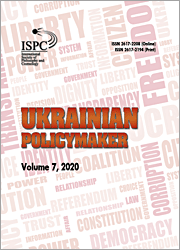The Specifics of the Formation of Think Tanks’ System in Asia (the Case of Japan) and Australia
The Specifics of the Formation of Think Tanks’ System in Asia (the Case of Japan) and Australia
Author(s): Ihor Petrenko, Vasyl FilipchukSubject(s): Politics / Political Sciences, Civil Society
Published by: Международное философско-космологическое общество
Keywords: think tanks; public policy; policy analysis; expert analytical activity; political analytics;
Summary/Abstract: The article deals with the analysis of the specifics of the formation of a think tanks’ system in Asia(the case of Japan) and Australia. It is noted that Japanese think tanks increase their influence on public policy and important public decisions. Initiators and sponsors of think tanks — enterprises, foundations,government agencies, local governments, political parties and individuals. In general, a network of competing think tanks is being formed. It is argued that Australia’s think tanks occupy a specific niche in the country’s political system and help the government to develop a balanced and optimal public policy in all spheres of public life. It is pointed out that the dominant types of think tanks in Australia are autonomous and independent, quasi-independent and university. The emergence of Australian think tanks is generally in line with the global dynamics of growth in the number of think tanks.
Journal: Ukrainian Policymaker
- Issue Year: 7/2020
- Issue No: 7
- Page Range: 43-51
- Page Count: 9
- Language: English

